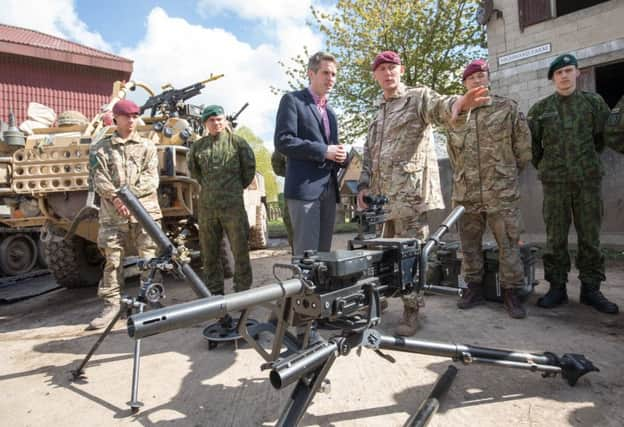Gavin Williamson says Afghan interpreters '˜should stay'


More than 150 of the interpreters who served on the front line in Helmand Province for more than a year have written to the Home Secretary saying they have been told to cough up thousands of pounds if they wish to be granted the indefinite right to remain in the UK. Handed five-year visas to seek sanctuary in Britain in 2014 – which is set to expire next year – the interpreters said the Home Office has yet to confirm if they can stay, leaving them “in limbo”.
But yesterday Defence Secretary Gavin Williamson told the BBC: “These are people who have served alongside our armed forces and they have done so much ... so we have made it absolutely clear they should be staying in this country.”
Advertisement
Hide AdAdvertisement
Hide AdIt is understood an agreement is close between the Ministry of Defence and the Home Office to waive the charges and allow them to remain in the UK.
Mr Williamson said: “We want to do everything we can do to make sure they are able to do that, and we have been in touch with the Home Office making that position clear, and I am quite confident the Home Office will be supporting us and making sure that happens as quickly as possible.”
The interpreters were allowed into the UK under a five-year relocation scheme and once it expires they will need to apply for indefinite leave which would incur the fee. It applies to those who served in 2012.
In February the Scottish Government announced it would change the rules to allow interpreters who worked for the UK armed forces in Afghanistan go to university or college.
Yesterday Mr Williamson said the “key” issue is that the interpreters have been asked to pay the fees which he said is “not right”, adding: “We are making sure that is going to be resolved because they have every right to be here.”
The letter from the interpreters reads: “We took great risk because we believed in the integrity of the British Army, only to be let down by politicians who see us as (a) number and not as people who have sacrificed more for this country than many of its citizens.”
Those who have signed the letter state that they have been told to pay £2,389 per person – a sum they say is “so great it is unaffordable for many”.